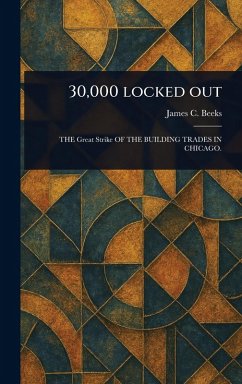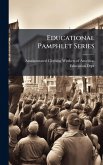"30,000 Locked Out: The Great Strike of the Building Trades in Chicago" by James C. Beeks delves into a pivotal moment in American labor history. This meticulously prepared republication chronicles the intense labor strike that gripped Chicago's building trades. Explore the challenges and struggles faced by workers in the early 20th century as they fought for improved working conditions and the right to organize. Beeks's detailed account examines the complexities of the labor unions involved and the impact of the lockout on the city. A vital resource for understanding the history of labor relations, "30,000 Locked Out" offers a compelling glimpse into a time when the fight for workers' rights shaped the landscape of American industry and society. Discover the story of this significant labor dispute and its enduring relevance to discussions about labor, economics, and social justice. This work has been selected by scholars as being culturally important, and is part of the knowledge base of civilization as we know it. This work is in the public domain in the United States of America, and possibly other nations. Within the United States, you may freely copy and distribute this work, as no entity (individual or corporate) has a copyright on the body of the work. Scholars believe, and we concur, that this work is important enough to be preserved, reproduced, and made generally available to the public. We appreciate your support of the preservation process, and thank you for being an important part of keeping this knowledge alive and relevant.
Bitte wählen Sie Ihr Anliegen aus.
Rechnungen
Retourenschein anfordern
Bestellstatus
Storno









